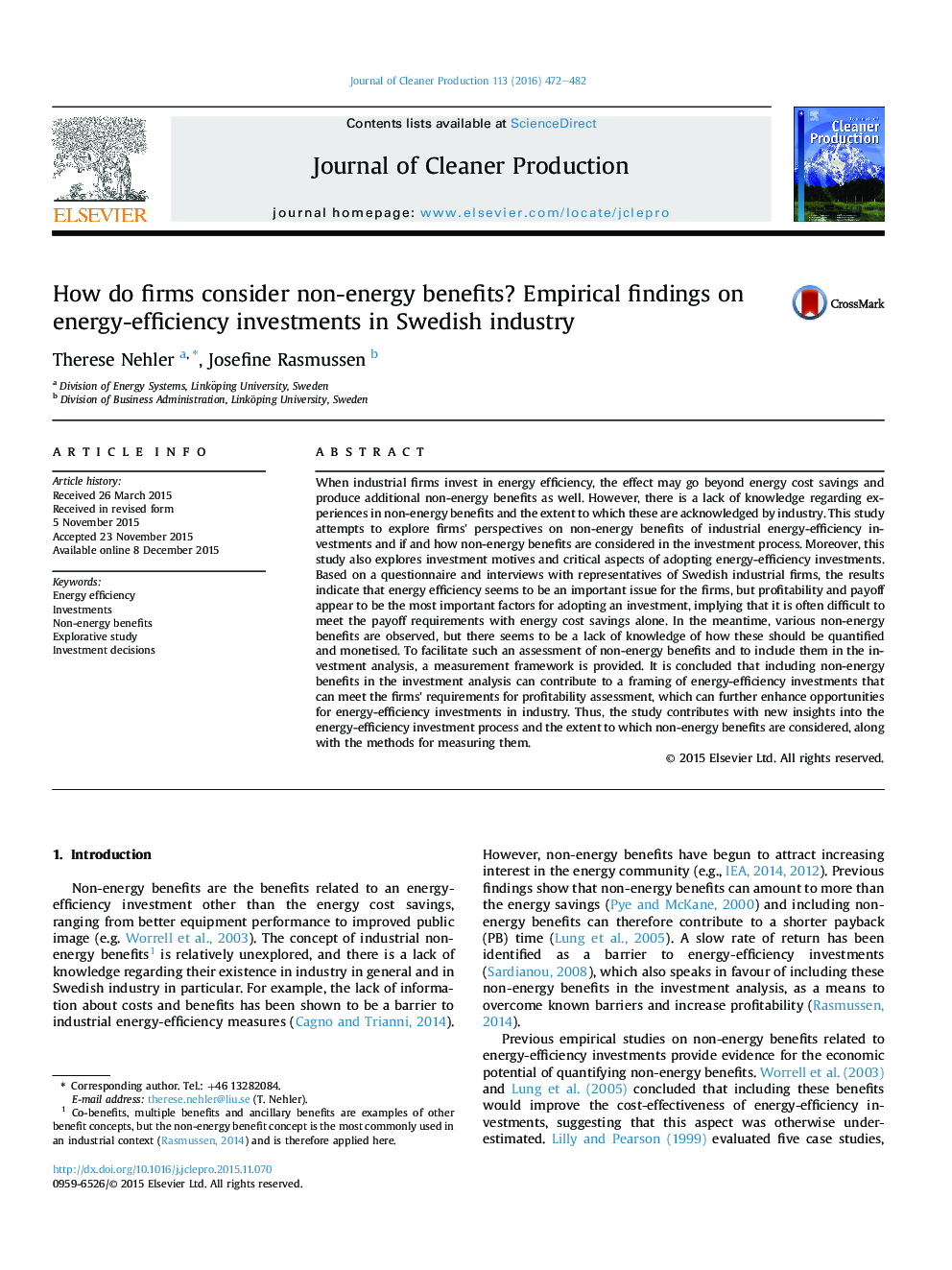| Article ID | Journal | Published Year | Pages | File Type |
|---|---|---|---|---|
| 8102916 | Journal of Cleaner Production | 2016 | 11 Pages |
Abstract
When industrial firms invest in energy efficiency, the effect may go beyond energy cost savings and produce additional non-energy benefits as well. However, there is a lack of knowledge regarding experiences in non-energy benefits and the extent to which these are acknowledged by industry. This study attempts to explore firms' perspectives on non-energy benefits of industrial energy-efficiency investments and if and how non-energy benefits are considered in the investment process. Moreover, this study also explores investment motives and critical aspects of adopting energy-efficiency investments. Based on a questionnaire and interviews with representatives of Swedish industrial firms, the results indicate that energy efficiency seems to be an important issue for the firms, but profitability and payoff appear to be the most important factors for adopting an investment, implying that it is often difficult to meet the payoff requirements with energy cost savings alone. In the meantime, various non-energy benefits are observed, but there seems to be a lack of knowledge of how these should be quantified and monetised. To facilitate such an assessment of non-energy benefits and to include them in the investment analysis, a measurement framework is provided. It is concluded that including non-energy benefits in the investment analysis can contribute to a framing of energy-efficiency investments that can meet the firms' requirements for profitability assessment, which can further enhance opportunities for energy-efficiency investments in industry. Thus, the study contributes with new insights into the energy-efficiency investment process and the extent to which non-energy benefits are considered, along with the methods for measuring them.
Related Topics
Physical Sciences and Engineering
Energy
Renewable Energy, Sustainability and the Environment
Authors
Therese Nehler, Josefine Rasmussen,
